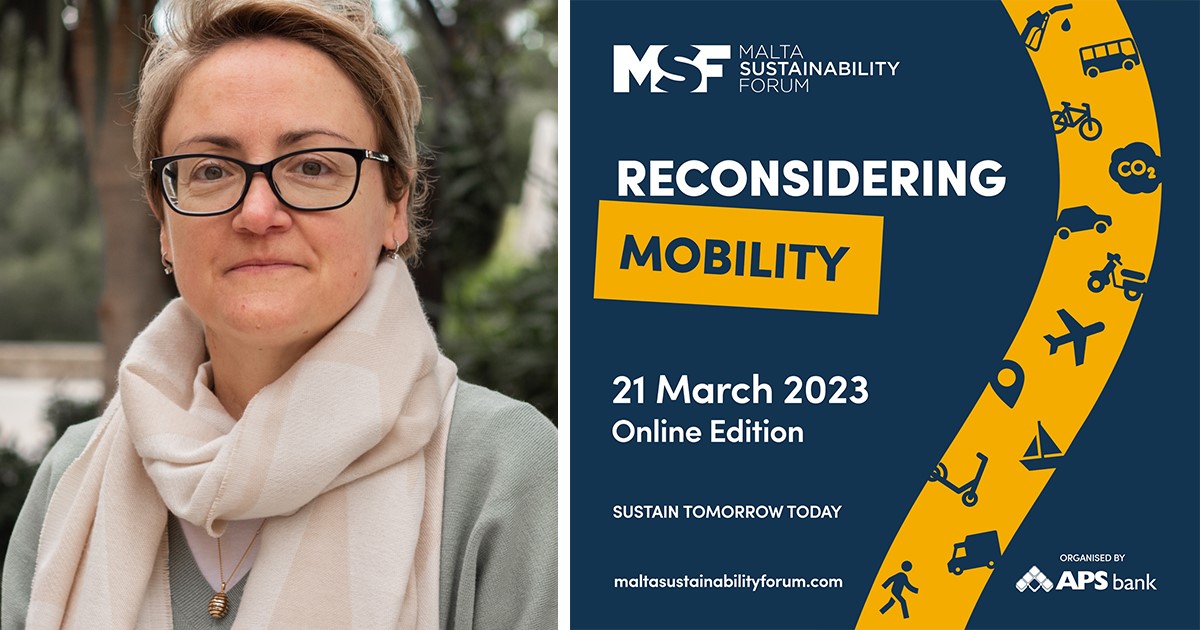Over the last decade, Malta has experienced steadfast economic development and considerable population growth, both of which have increased the pressure on the limited land resources, infrastructure and services. A critical driver supporting this development is transport, however, the growth in both passenger and goods transport has not been sustainable.
For the past three decades, Malta has been registering a very high motorisation rate with 780 vehicles per 1,000 population in 2020, way more than a vehicle for every licensed driver. Passenger cars make up over 76% of the vehicle fleet. The use of a private vehicle for everyday mobility is among the highest in the world, with 84.3% of all trips done by car in 2021. This results in several negative impacts on the environment, society and economy – all the pillars of sustainable development.
The impact of transport systems on the environment has been known for years. The decline in use of public transport systems and the rise in vehicular traffic has and continues to contribute to the decline in air quality in our cities, as well as increased noise. The infrastructural demands of increased vehicular traffic reduces the space available for other much needed greener infrastructure that improves the livability of cities and mitigates the negative environmental impacts of urban areas in terms of emissions, global warming and climate change. These factors impact society directly through the negative effects on public health. In fact, the European Environment Agency estimated over 200 premature deaths in Malta were linked to particulate matter (PM2.5), Nitrogen Dioxide and Ozone in 2020, and exposure to high levels of pollution, especially during certain hours and days of the week.
A car dependent society, and consequently a car dominated urban environment, also has its toll on mental health. Wellbeing is affected negatively by roads which are inaccessible or considered unsafe for walking and interacting within the community, by isolating and causing severance among individuals, such as the elderly and children who struggle to independently access community services and opportunities, such as going for a walk or accessing a park to play. These impacts, although challenging to quantify, are visible in statistics about loneliness, the high age of child independence, and to a certain extent obesity. It is important to keep in mind that Malta recorded the highest levels of obesity in Europe, with 65% of its adult population considered overweight in 2019.

The impacts on public health also extend to the number of people that are injured or fatally killed in road incidents. Although Malta’s road fatality numbers oscillate over the years, 2022 was of particular concern, as the last time such a high number of people died on the roads dates back to the 80s, with 27 fatalities in 1986. These injuries and fatalities were estimated to cost the islands €84m annually in 2016.
Transport is a critical but costly infrastructure. It is a considerable burden on the islands’ budget each year, both in terms of construction and maintenance, and in terms of land grab. Malta has one of the highest rates of land area dedicated to roads, with over 2,800km of surfaced infrastructure. A number of impacts, in addition to the above, need to be considered. For example, road widening comes at a higher cost, with the loss of some very fertile agricultural land (estimated at 60,000 sqm in the case of the Central Link). In an island which struggles with limited land and even more scarce soil resources, the building of road infrastructure at the expense of good agricultural areas, threatens food security, but not only. Increased tarmac and concrete surfaces, unable to absorb rain water, cause extreme flooding. Again, this has been increasingly evident over the last few years with extreme weather events becoming more common. The flooding does not only affect and damage urban areas, but also accelerates soil loss during storms, with water flowing more forcefully through fields (especially those adjacent to roads) and leaching out precious soil. The reduced efforts to preserve traditional stone walls do not help in reducing this impact.
All these externalities have ultimately an impact on the economy. The European Commission estimated congestion, noise and air pollution alone cost Malta some €400m in 2022. Back in 2016, myself and two colleagues from the University estimated that each driver loses 52 hours per year commuting – a conservative estimate when considering how much traffic has increased since then. This path is unsustainable, and only a bold strategy containing short and long term, and complementary measures will ensure we can live better and leave something worthy for future generations.
Prof. Maria Attard will be a speaker at the conference, ‘Reconsidering Mobility’. The first event for MSF 2023 will focus on the need to reconsider our mobility choices. It will look into the latest data relating to mobility and the impact of our current modes of transportation locally. It will also discuss the targets set by the EU to reach carbon neutrality by 2050 and solutions across the EU which are applicable for our islands. A panel discussion will analyse some of the sustainable solutions and technologies being implemented by businesses to be greener. The session will conclude with a focus on individual actions for more sustainable mobility, viable for Malta.

